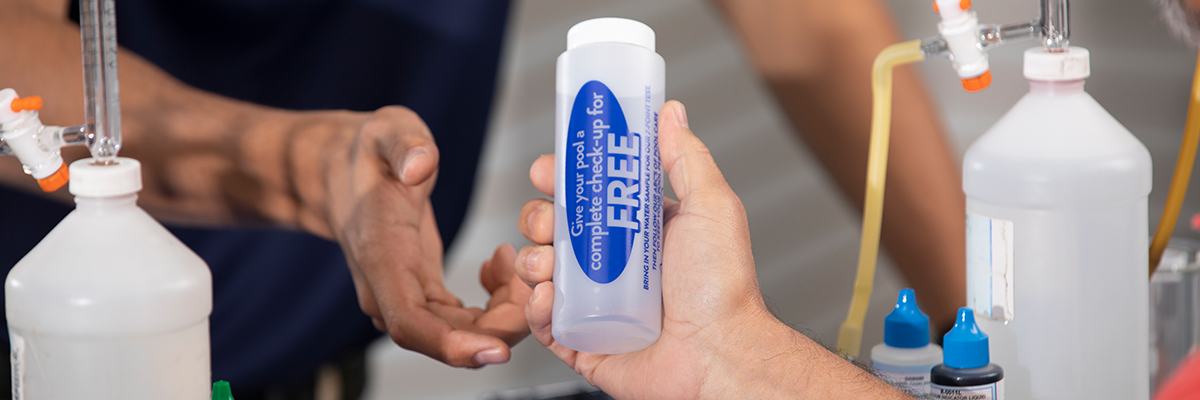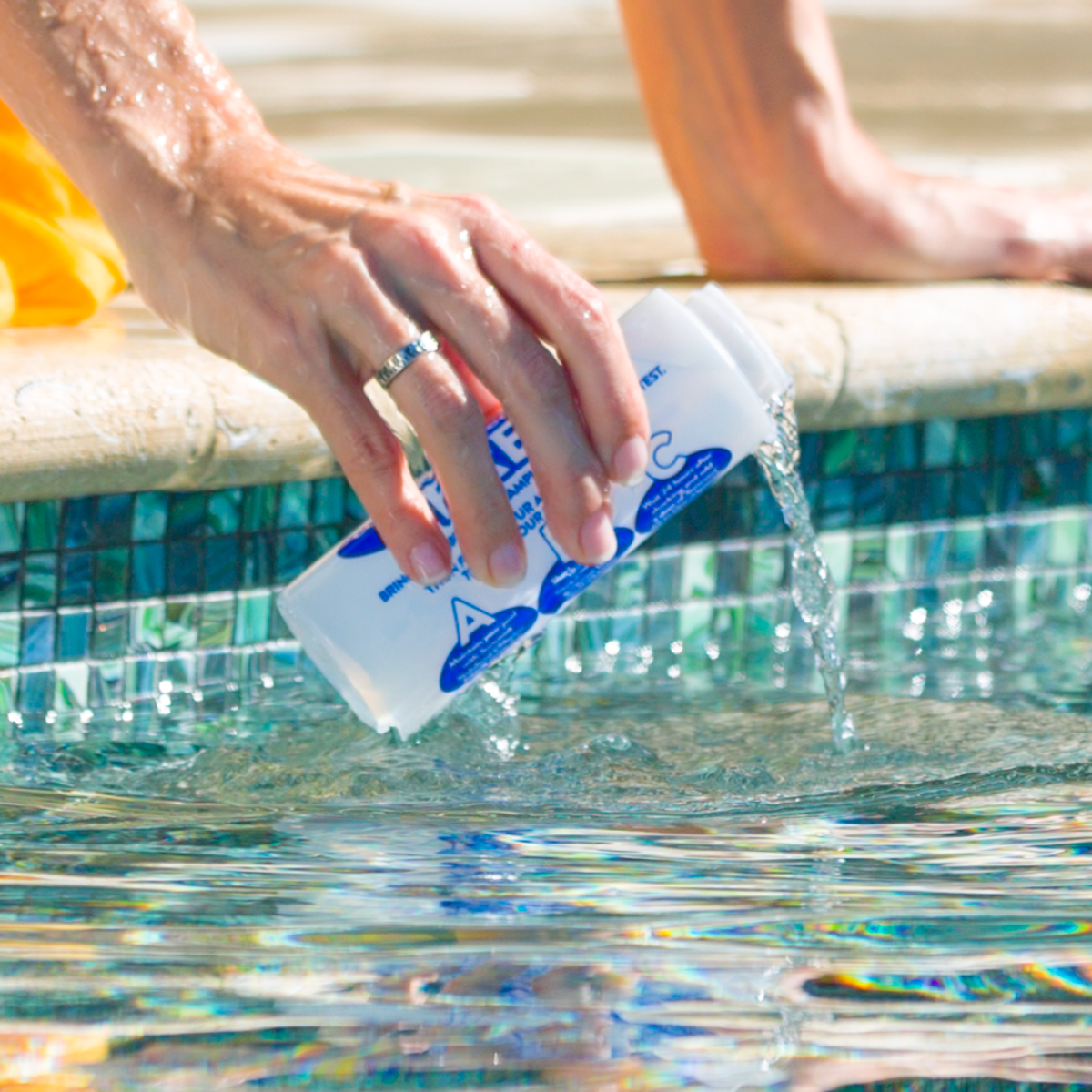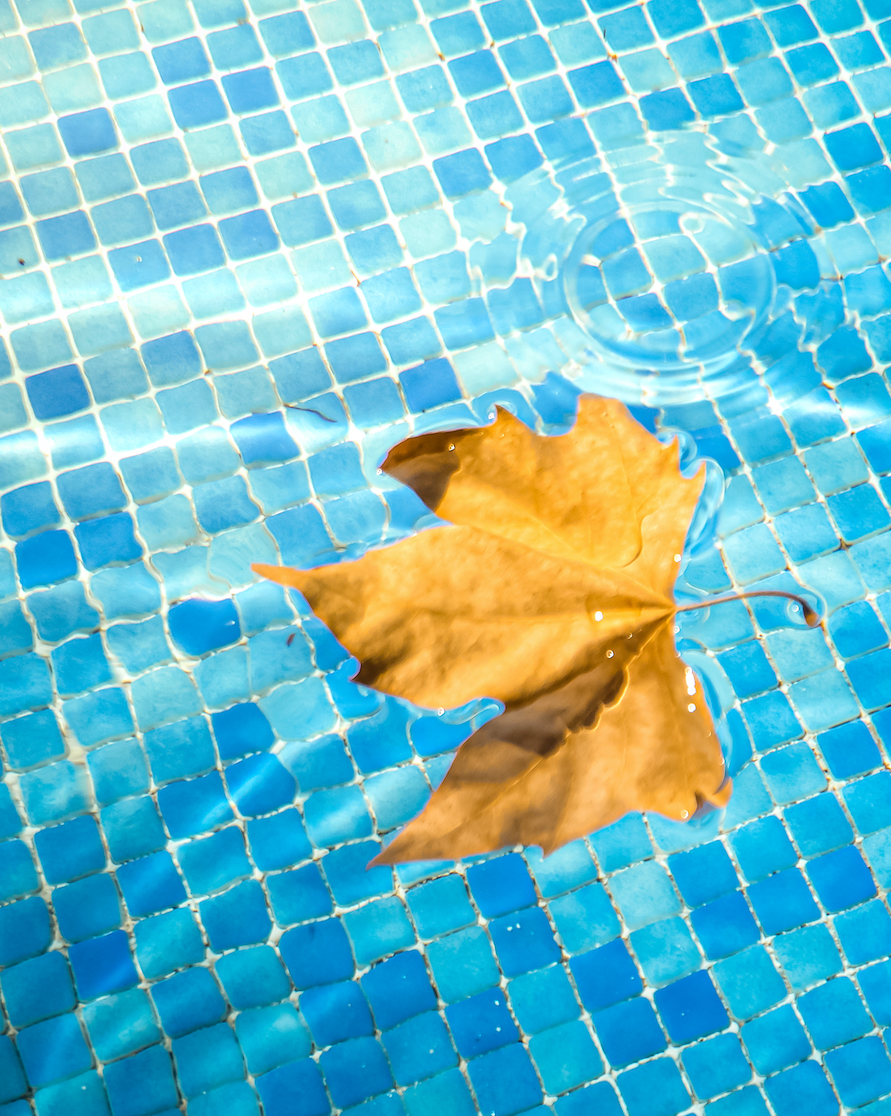
A "balanced" swimming pool or spa means keeping the five basic pool water components (total alkalinity, pH, calcium hardness, stabilizer, and total dissolved solids) within their proper levels. These components work together to help the sanitizer work more effectively at fighting germs, bacteria, and algae. They also protect your pool's equipment and surfaces, help keep the water clear and provide a more comfortable swimming experience. Balancing your pool water and keeping pool chemicals in their optimum ranges will help ensure that your water is ideal for your swimming pool and its swimmers.
Based on the test results and the size and type of your pool, our software will give you a pinpoint prescription for what your pool needs. Remember, water balance is constantly changing, especially in spas and hot tubs that are smaller bodies of water. Test your water regularly, either in-store or with our app. It's free, precise, and only takes a few minutes!
We recommend that you test your water weekly, especially in the warm months of summer when the bather load is high and it is consistently hot. This is the best way to keep the levels from being too far out of balance. In winter we suggest every few weeks or so to keep your water from becoming too unbalanced. Even if you test your water at home with pool test strips, we recommend you bring a sample to Pinch A Penny every so often to ensure everything is matching up and our pool experts can make any recommendations.
Water testing is also important when reopening your pool after closing it for winter.

You can test your water at any time, but you should do it at the same time each week to ensure consistency. Don't collect a sample after adding chemicals. In addition, if there is heavy rain or a storm, we recommend you test your water afterward.
To ensure accurate results take your test from the deep end of the pool, or as deep as you can get in your spa. Ensure that the pump has been running for at least an hour prior to taking your sample and you are away from any floating chlorinators. Be sure to submerge the bottle to at least your elbow, as far into the pool as you can reach.
Bring it to your store as quickly as possible after drawing your sample. You can always get a bottle at the store if you don't have one!
If you have a salt pool, the professionals at Pinch A Penny can test your salt levels as well. Many of the parameters above are the same, but our water test software will recommend different products that work best with your pool. Even if your salt generator detects your saline levels, it's smart to confirm them with a water test regularly.
What We Test For In Store
-
Chlorine Levels
If your chlorine level is too low you may get algae and bacteria growth. However, if it's too high you may get staining. Plus, you will be spending more money than necessary on chlorine.
-
pH
When your pH is low it means your pool water is too acidic. This can cause burning eyes and skin irritation, and, is corrosive to your pool finish and equipment. High pH can also cause skin and eye irritation, and causes your chemicals to be less effective.
-
Total Alkalinity
Low alkalinity can cause rapid deterioration of some types of pool surfaces and fittings or even lead to metal stains. High alkalinity can also cause stains and may lead to scale build-up, which can impact the efficiency of your pool equipment.
-
Stabilizer
Low stabilizer levels will cause your pool to use more chlorine than necessary which costs you money! High stabilizer levels can lead to stains or spot etching of your pool’s finish.
-
Calcium Hardness
When the calcium hardness is too low the water becomes corrosive, which may lead to staining and etching of your pool’s finish. It will also wear down and damage your equipment and metal fittings which may cause your pool equipment to run inefficiently.
-
Acid/Base Demand
This detailed test determines how much Suncoast pH Minus or Suncoast® pH Plus your pool needs when the pH is out of balance.
-
Total Dissolved Solids (TDS)
High TDS levels make it difficult for your pool chemicals to dissolve and do their job. This can lead to persistent issues with algae, cloudiness, and staining. Also, pool water with a high TDS level can taste salty.
Water Test Strips Or Kits?
There are a few ways to test your water. You can use a test strip or a kit when you are at home. Test strips are cheaper and easier to use. You only need to dip them in the water and compare the results. They don't test for as many parameters as a test kit, though. A test kit has you add chemicals to a sample of water to determine the results. It's a little more complicated but gives better results. Digital pool water testers are available but tend to be too expensive for most pool owners. We recommend Porpoise 5-way Test Strips for use with our app.
Test Your Water With The App
The Pinch A Penny Pool Care App is an all-in-one water testing app that not only simplifies the water testing process but allows Pool Owners INSTANT solutions. Use our photo analysis feature or enter your parameters manually for instant diagnosis! Then, order the products you need and pick them up at your local Pinch A Penny store. It's as easy as that!
If you are a pool service customer you can also receive a notification of upcoming service or request a quote for any of our backyard services. Download the Pinch A Penny Pool Care App from the Apple App Store or Google Play store today!
Stop into your local Pinch A Penny for a FREE water test bottle and get started on your way to a clean and healthy swimming pool!
Share This Post
Related Tags



